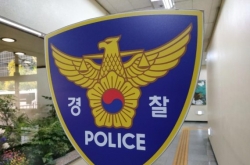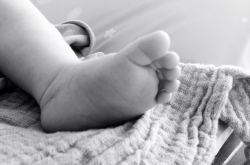 |
Rep. Park Dae-chul, the head of the ruling People Power Party policy committee, (center) speaks during a meeting with government officials on Wednesday. (Yonhap) |
South Korea’s ruling People Power Party is seeking to pass legislation allowing women to give birth anonymously at hospitals as a part of a strategy to reduce the number of children denied registration and promote safe maternal care.
Rep. Park Dae-chul, the head of the People Power Party’s policy committee, said his party agreed to back legislation to introduce an “anonymous birth” system, where women unwilling to disclose their identity at childbirth will have the option to do so.
The system would give women the right to give birth at hospitals in secret, and have access to medical help and welfare support, he explained. Currently, women are required to provide their identity to give birth to a child at a medical institution.
“The legislation, if passed, would yield protection to pregnant women whose circumstances make them reluctant to reveal their identity. Women in difficult situations would be able to give birth to a child safely at a hospital,” Park said.
He said the People Power Party reached an agreement Wednesday to support the passage of the legislation that is currently pending at the National Assembly’s health and welfare committee, and asked for the opposition parties’ cooperation. The Assembly’s majority is controlled by the main opposition Democratic Party of Korea.
Democratic Party lawmakers say allowing women to give birth anonymously might lead to more women giving up their child.
“One consequence of this system might be that women are encouraged to give birth anonymously (and leave their child), when they should be raising their children themselves,” Rep. Shin Hyun-young on the Assembly health committee said, opposing the legislation.
The legislation is met by protest from children’s rights groups that say anonymous births are not a solution to the issue of unregistered children.
The International Child Rights Center, a nonprofit organization based in Seoul, said in a statement issued June 23 that permitting anonymous births was “preposterous.” “On the contrary, parents need to be forthcoming about the birth of their child,” the statement said.
The organization said in the statement that anonymous births “permanently deprive a child’s right to know his or her roots and to claim parental support.”
The plan for allowing women to give birth anonymously follows the Board of Audit and Inspection’s report released last Thursday which revealed that at least 2,236 children born between 2015 and 2022 were never registered with the government. This figure excludes around 4,000 unregistered children born over the same period to noncitizen parents.
In response to the state inspection body report, the government opened an investigation Wednesday to search for children who were not registered at birth. Parents and caregivers will be encouraged to come forward and register their child without penalization, and child protection services across the country will be surveyed.
The state inspection body said in its report that children whose births are not registered are deprived of their essential rights such as formal education and immunization. Without any official record of their existence with the government, they also become easy targets of crime such as abuse and neglect, it added.
Separately, another legislation was proposed earlier this month by Democratic Party Rep. So Byung-chul to allow noncitizens residing illegally in the country to register a child born here without facing deportation or other disadvantages.










![[Today’s K-pop] Blackpink’s Jennie, Lisa invited to Coachella as solo acts](http://res.heraldm.com/phpwas/restmb_idxmake.php?idx=644&simg=/content/image/2024/11/21/20241121050099_0.jpg)